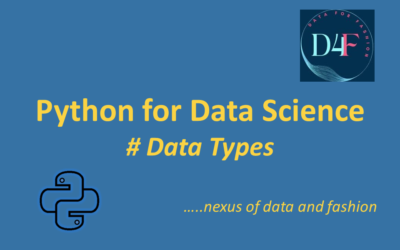Data Types:
Data type specifies the nature of the data stored in a variable. It defines the type of operations that can be performed on the data and the way the data is stored in memory. Python has several built-in data types that are commonly used for various purposes.
Basic data types in Python:
Numeric Types:
- int: Represents integers (whole numbers) like 1, 2, -3, etc.
- float: Represents floating-point numbers with decimal places like 3.14, 2.5, -0.5, etc.
- complex: Represents complex numbers with a real and imaginary part like 2 + 3j, -1 + 2j, etc.

Boolean Type:
- bool: Represents Boolean values, either True or False. Used for logical operations and conditions.

Sequence Types:
- str: Represents a sequence of characters which are ordered and immutable. Created using single (‘) or double (“) quotes.
- list: Represents ordered, mutable (changeable) sequences of elements enclosed in square brackets [ ],
- tuple: Represents ordered, immutable (unchangeable) sequences of elements enclosed in parentheses ( ),

Mapping Type:
- dict: Represents unordered collections of key-value pairs enclosed in curly braces { }.

Set Types:
- set: Represents an unordered collection of unique elements enclosed in curly braces { } or created using the set( ) function.
- frozenset: Represents an immutable version of a set, created using the frozenset( ) function.

None Type:
- None: Represents a special type that indicates the absence of a value or a null value.

These are some of the commonly used built-in data types in Python. Python also allows you to define custom data types using classes and object-oriented programming concepts.
Understanding data types is essential because it helps determine the kind of operations that can be performed on the data, the memory requirements, and how the data is processed and manipulated in a program.

